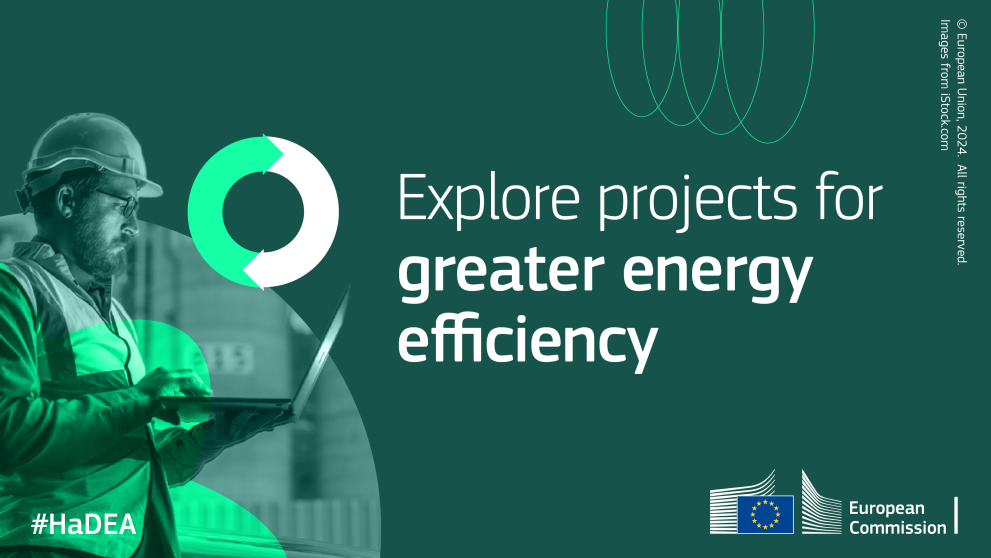
Each year on 5 March, the World Energy Efficiency Day serves to raise awareness about the critical need to foster greater energy efficiency in various domains. Energy efficiency is a strategic priority of the European Union. In 2023, the EU agreed on an ambitious energy efficiency target of reducing final energy consumption by at least 11.7% compared to projections of the expected energy use for 2030. Ambitious energy efficiency targets are key to driving Europe’s energy transition.
Discover how several Horizon2020 and Horizon Europe projects are working towards this goal:
- FLEXIndustries is working to deploy the most suitable energy efficiency measures and process flexibility methods for the industrial environments in seven industry sectors (automotive, biofuels, polymers, steel, pulp & paper, pharmaceuticals, cement). These measures include integrating innovative energy generation, storage, and conversion assets, together with smart and digital tools for optimised operation and control, as well as novel business models and market mechanisms for enhanced industrial flexibility.
- IN-POWER improved concentrated solar power (CSP) technologies for a more widespread adoption. With advanced materials and innovative manufacturing techniques, it addressed all three main components of CSP: the solar field for solar-to-thermal conversion, the power block for thermal-to-electrical conversion, and a thermal storage system.
- PeroCUBE developed sheet-to-sheet and roll-to-roll printing processes to accelerate the market entry of metal halide perovskite semiconductors. The project contributed to the European energy transition efforts by demonstrating scalable methods to produce rigid and flexible perovskite photovoltaic modules with enhanced performance and stability. In addition, the project demonstrated the potential of printed perovskite thin films for combined energy harvesting and visible light communication for smart devices/IoT.
- RETROFEED enabled the use of variable, bio-based and circular feedstock in process industries through retrofitting of equipment and implementation of advanced monitoring and control systems. This addressed increased variability in feedstock while enhancing technical, economic, and environmental performance. The project developments were demonstrated in six use cases in five resource and energy intensive sectors (ceramics, cement, aluminum, steel, and agrochemicals).
- SURE2COAT is working to enable the use and uptake of aluminium, instead of steel, in new sectors involving products with complex shapes, such as electrical engines, heating systems and heat storage units. To address aluminium’s corrosion problem, it is developing new surface treatments and innovative production technologies, also aiming to increase the energy efficiency and the use of recycled aluminium.
Background
Horizon 2020 was the EU’s multiannual funding programme between 2014 and 2020. H2020 provided Research and Innovation (R&I) funding for multi-national collaboration projects alongside individual researchers and SMEs via special funding instruments. Horizon 2020 is succeeded by the Horizon Europe Programme, which will run until 2027.
Details
- Publication date
- 5 March 2024
- Author
- European Health and Digital Executive Agency
- Programme Sector
- Industry
- Programme
- Horizon Europe
- Horizon Europe Cluster 4: Industry
- Tags
- EUFunded
- Industrial research
- Innovation
